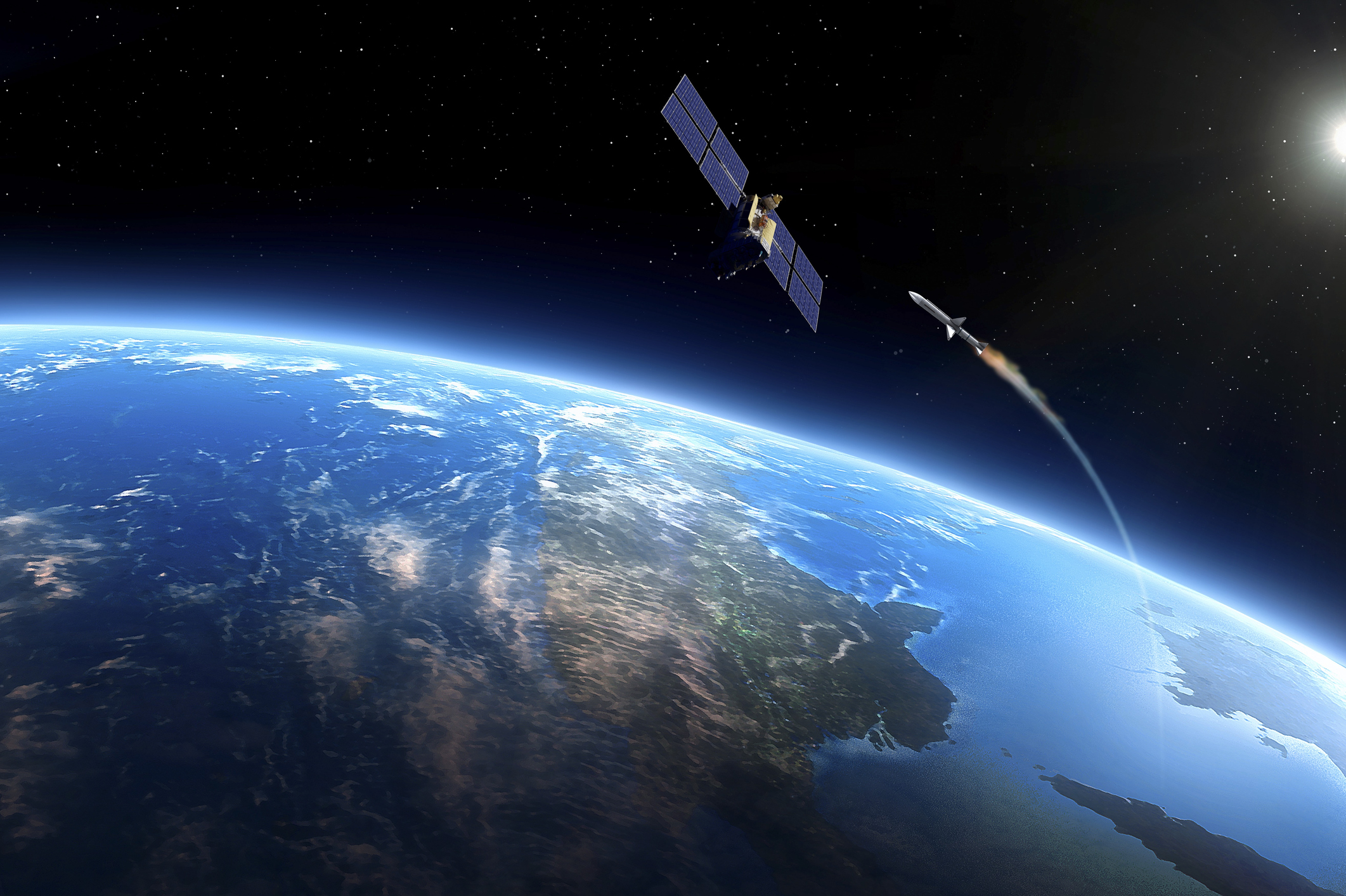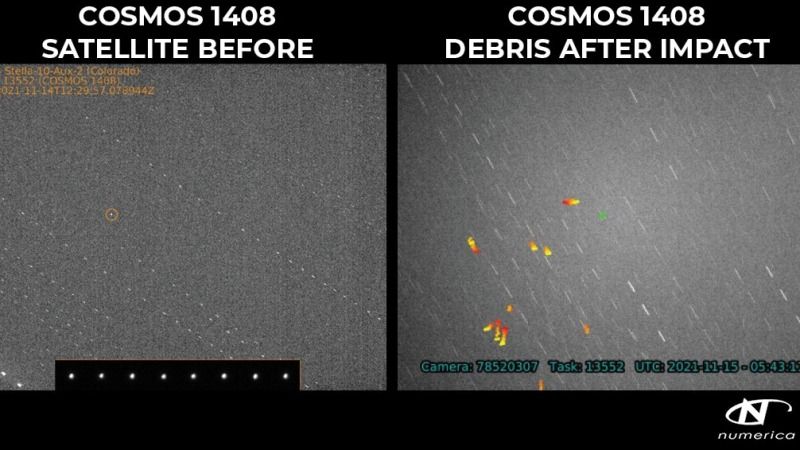Germany and Japan pledge not to conduct destructive anti-satellite tests
Germany and Japan join a growing list of nations that say they won't conduct destructive anti-satellite tests.

Germany and Japan have pledged not to conduct destructive anti-satellite tests that could create dangerous clouds of space debris in orbit.
The announcements of these pledges were both made at the second session of the United Nations' open-ended working group on reducing space threats, which is being held in Geneva from Sept. 12 to Sept. 16. The working group is meeting to discuss ways to reduce threats in space through creating and adhering to norms and principles of responsible behavior.
Germany's and Japan's announcements follow similar pledges made by the United States, Canada and New Zealand in the wake of Russia's irresponsible destruction of a satellite in November 2021 that created a massive cloud of space debris.
Related: Russian anti-satellite missile test draws condemnation from space companies and countries
Japan made the announcement at the UN's working group on Monday (Sept. 12), then published a formal written statement through its Ministry of Foreign Affairs on Tuesday (Sept. 13). The statement declares that Japan's government has "decided not to conduct destructive, direct-ascent anti-satellite (ASAT) missile testing in order to actively promote discussions in the international for a concerning the development of norms of responsible behavior in outer space."
"The Government of Japan will continue to play an active role to achieve secure, stable and sustainable outer space including the development of norms of responsible behavior in outer space," the statement continues.
On Tuesday (Sept. 13), Germany declared that it would uphold the same commitment. The United Nations Office for Disarmament Affairs released a transcript of Germany's statement on Tuesday (Sept. 13), in which Germany's representative at the working group stated that the nation "commits not to conduct destructive, direct-ascent anti-satellite missile testing" and "invites all States to follow suit and advocates for the creation of a universal norm banning such testing."
Get the Space.com Newsletter
Breaking space news, the latest updates on rocket launches, skywatching events and more!

"Germany fully supports efforts within the United Nations with the aim of reducing threats and risks affecting space systems," the country's statement continues. "Conflict and confrontation in space are not inevitable. Yet there is an urgent need to develop and implement norms, rules and principles for responsible space behaviors to prevent misunderstanding and risk of escalation. Germany calls on all States to conduct space activities in a peaceful, responsible and sustainable manner and to uphold and strengthen a rules-based international order for outer space."
United States Vice President Kamala Harris reiterated on Friday (Sept. 9) during a meeting of the National Space Council (NSC) at NASA's Johnson Space Center in Houston that the U.S. would push for stronger international cooperation on abandoning destructive anti-satellite tests that can create thousands of pieces of debris that place other spacecraft in danger.
These types of tests, known as direct-ascent anti-satellite (ASAT) tests, involve launching missiles from the ground to destroy defunct satellites in orbit. Russia was widely condemned by the international space community for conducting one of the most blatant of these in November 2021, creating a squall of debris that forced the International Space Station (ISS) to have to perform an avoidance maneuver to avoid a possible collision.
Five nations have now committed to not performing destructive direct-ascent anti-satellite tests: the United States, New Zealand, Germany, Japan, and Canada.
Follow Brett on Twitter at @bretttingley. Follow us on Twitter @Spacedotcom or on Facebook.
Join our Space Forums to keep talking space on the latest missions, night sky and more! And if you have a news tip, correction or comment, let us know at: community@space.com.

Brett is curious about emerging aerospace technologies, alternative launch concepts, military space developments and uncrewed aircraft systems. Brett's work has appeared on Scientific American, The War Zone, Popular Science, the History Channel, Science Discovery and more. Brett has English degrees from Clemson University and the University of North Carolina at Charlotte. In his free time, Brett enjoys skywatching throughout the dark skies of the Appalachian mountains.








